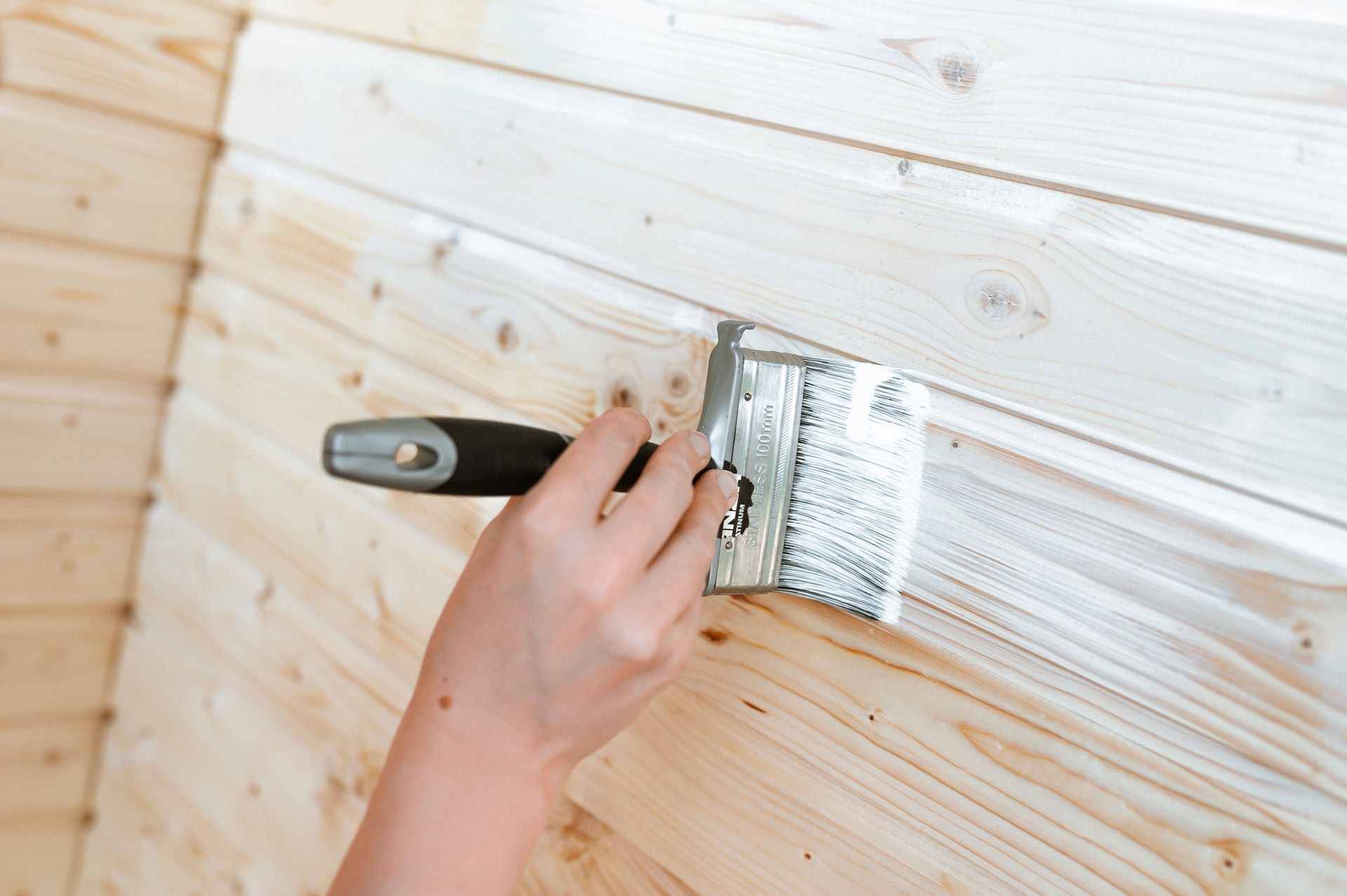Green Pool Water? These 3 Easy Methods Will Help You Clean It!
A pool in the garden is a comfortable amenity, especially during hot sunny days. Regardless whether you decide on a mobile construction or a traditional pool built in the ground, regular cleaning is highly important. Otherwise, the water might turn green. Are you wondering why this happens and how to deal with green water in a pool? Check out the best solutions.

Why is my pool green?
There are many possible explanations for green water in a pool. If it happens with your reservoir, take some time to think about the reason. What might cause this phenomenon? Typically, the following issues:
- poor-quality pool chemicals,
- lack of pool chemicals,
- too short filtration cycle,
- wrong pool filters,
- not rinsing pool filters.
Pool chemicals can be often found in ordinary supermarkets. But make sure to be careful, as these aren’t always top-quality products. Not only their effectiveness is typically questionable, but also they might be harmful for your health. It’s very dangerous – especially if the pool is going to be used by small children. Make sure to pick trusted and certified products. German products are usually recommended by experts.
But pool chemicals are not the only factors affecting green water in a pool. The filtration process is equally important. To keep the water clean, the process should last at least 8 hours. Also, few people realize how significant it is to clean the pool filter. It should be done at least once a week.
Each of the mentioned elements can cause green pool water. That’s why it’s so essential to follow the basic rules about cleaning the reservoir.
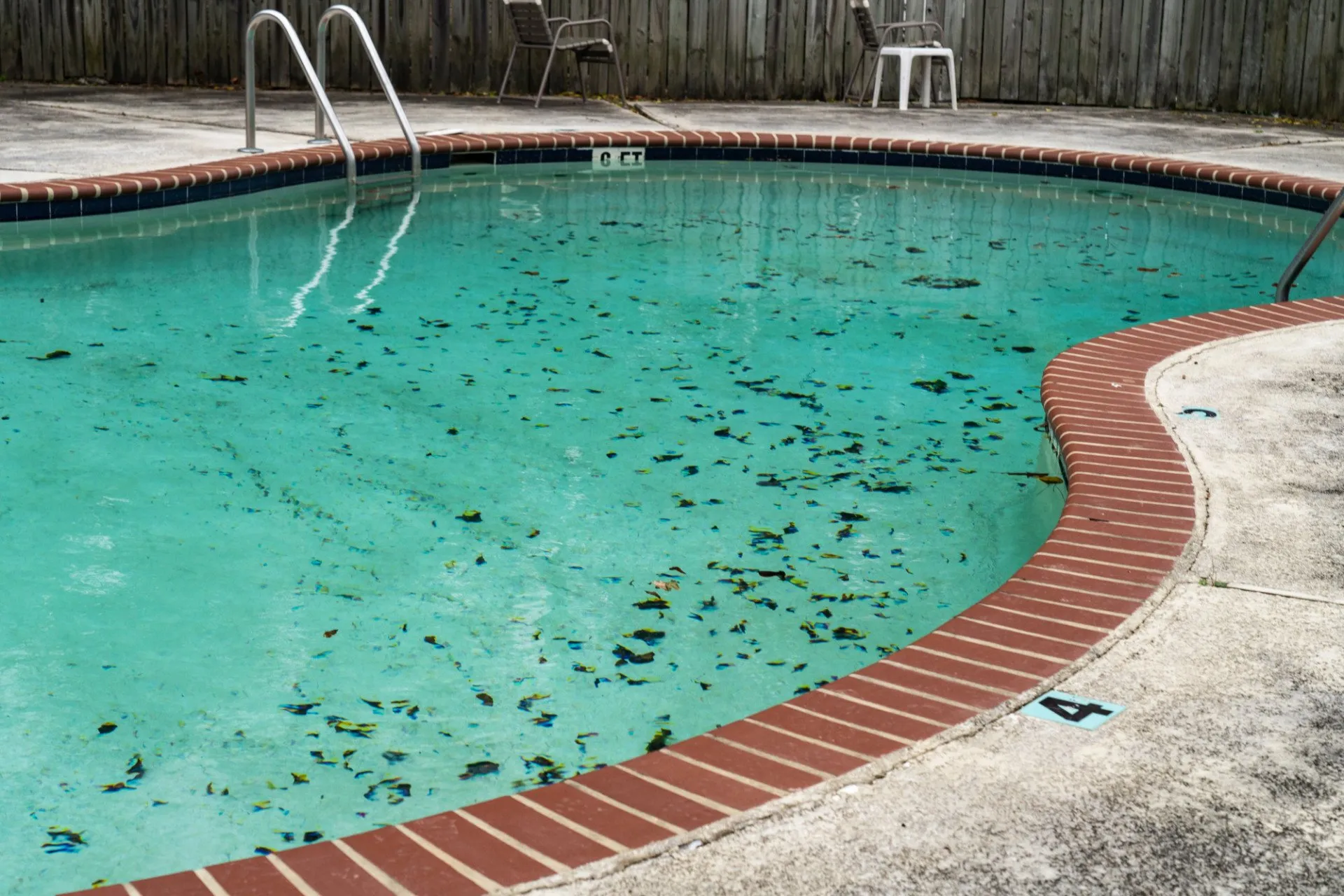
Is green pool water harmful?
Green water in a pool is a sign that something troubling is happening inside of it. As it turns out, water changing its color is a kind of signal indicating a presence of microbes such as:
- fungi,
- bacteria,
- parasites.
You never know which pathogens you are dealing with. Some of them are particularly dangerous. If you notice green water in your pool, make sure that you or your children don’t swim in it. Clean the reservoir and use some preventive measures to avoid the problem reappearing in the future.
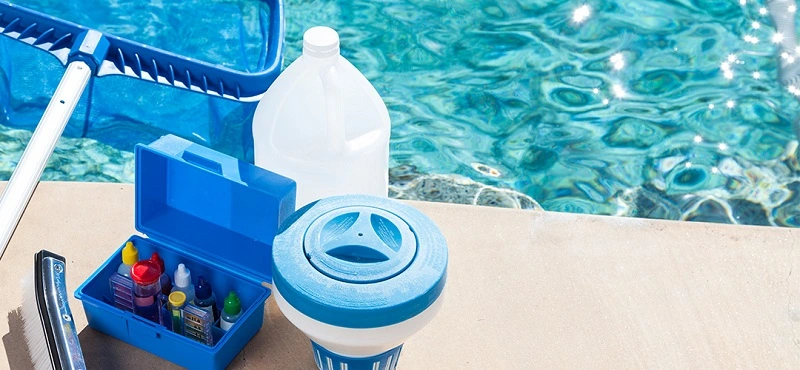
How often should you clean a pool?
As for the basic water filtration and using pool chemicals, these two steps should be taken care of on a daily basis. The water pump should be turned on every day or night – at least for the duration of the mentioned 8 hours.
You can perform a more intense cleaning of your above ground pool once a month. The reservoir should be emptied, the pool bottom vacuumed and filled with water again.
A traditional pool built in the ground is typically cleaned after summer, and then also before the season begins. You can do it yourself using special tools and chemicals. But in case of large pools, cleaning services are usually hired.
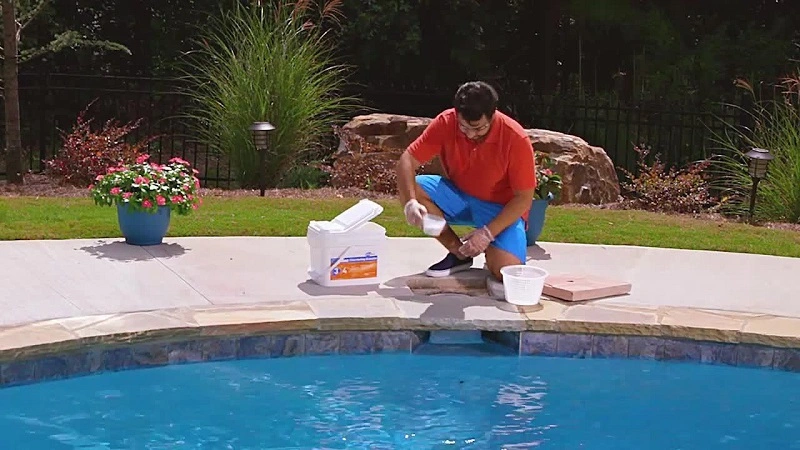
Does green pool water mean it needs replacing?
If water in your pool is green, it’s a good moment to do something about it. But you don’t have to replace the water. Perhaps its pH level is simply incorrect, and increasing chlorine content will solve the problem. Major dirt can be removed with a pool strainer, and the bottom can be cleaned with a pool vacuum. The water should be good to use afterwards.
It’s important to run the water filter for longer after shocking the pool. Experts suggest leaving it on for 48 hours. Thanks to this, the water gets thoroughly cleaned. It should be transparent after this.
If the water doesn’t change its color after 48 hours, despite following all the mentioned steps, it means it should be replaced. If so, make sure to clean the reservoir meticulously, to remove any fungi and bacteria.
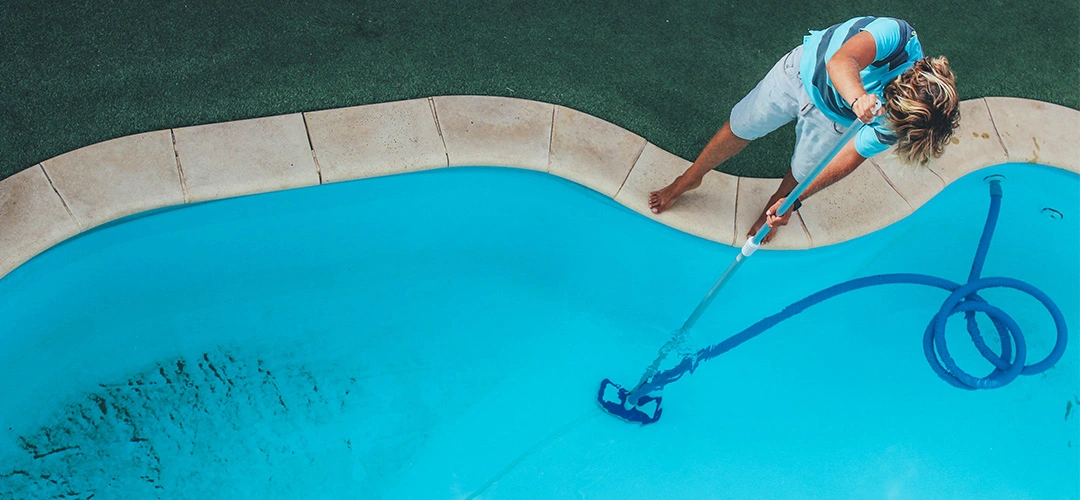
How to prevent green pool water?
Although many think that sooner or later, the water in the pool will turn green, in fact, it can be prevented. Are you wondering how? Regular cleaning and using chlorine tablets are the essential actions to take. Multifunctional products are the best option. They work on a multidimensional level, which means that they:
- regulate water pH,
- prevent green algae in the pool,
- disinfect the liquid,
- prolong the freshness of the water.
The packaging usually contains an instruction on how much of the product to use and how frequently you should throw it in the pool. Make sure to follow these rules carefully to keep the pool water clean.
Proper filtration is an absolutely essential element of preventing green pool water. There’s no point in trying to save up on turning the pump for a shorter time. By doing so, you make the pump ineffective, and the water has to be replaced more frequently. As a result, you generate higher expenses.
Can you clean green pool water with vitamin C?
Owners of small pools use powdered vitamin C when the water turns green. Indeed, this ingredient improves the liquid’s color and turns it transparent again. But does it mean such water is suitable for bathing? Not necessarily – for a simple reason: vitamin C is not antibacterial. It’s a temporary solution which should be rather avoided.
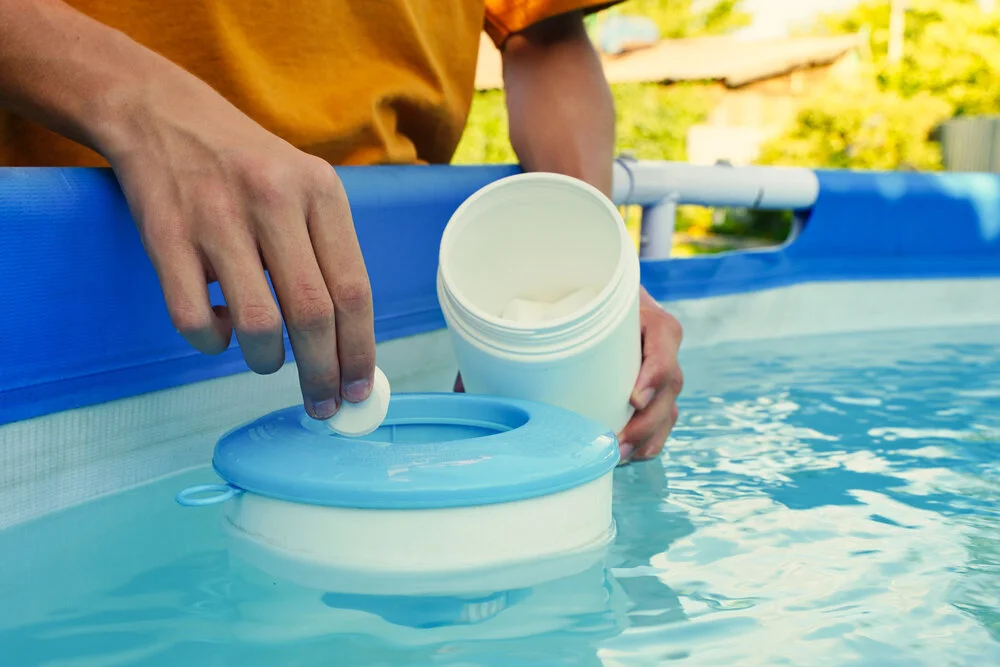
📍 How often should you clean your pool?
The basic cleaning such as water filtration is done every day – special equipment does that for you. More thorough cleaning should be performed once a month or once per season – depending on how dirty the reservoir is. Traditional pools built in the ground are typically cleaned after summer ends and before the next season begins.
📍 How much does pool cleaning cost?
Cleaning the pool yourself is not expensive. You just need to buy proper cleaning equipment and refill pool chemicals as needed. The cost of cleaning the pool by a hired professional depends on the pool type and size. It costs from $80 to over $100 per single service.
📍 Why has the water in my pool turned green?
The reasons behind green water in the pool differ. Typically, it might be caused by wrong pool chemicals or using them too rarely. In some cases, the water filter might be malfunctioning, be mismatched or turned on for too short. One is certain – green pool water is dangerous, as it might contain fungi, bacteria and other pathogens.
Featured articles



